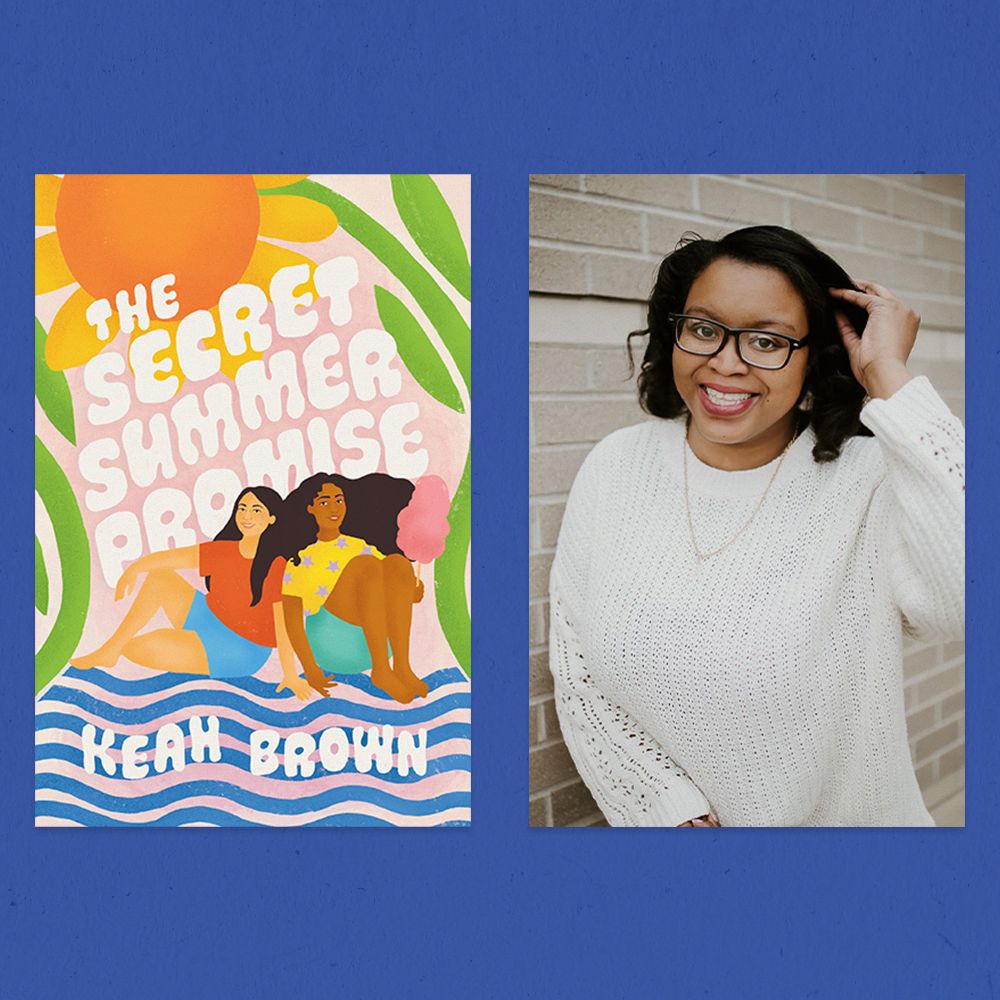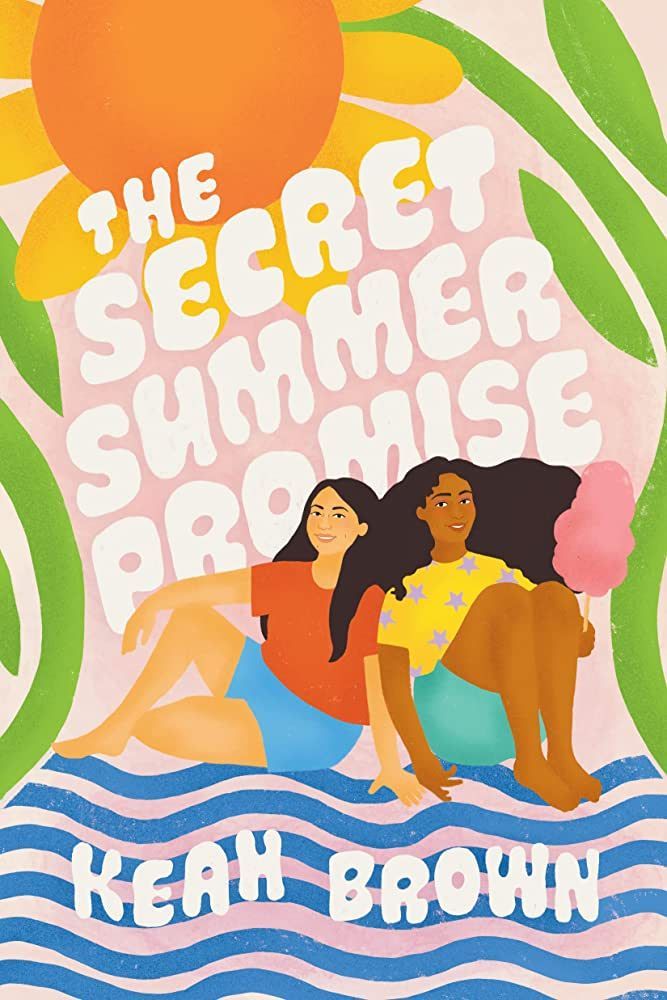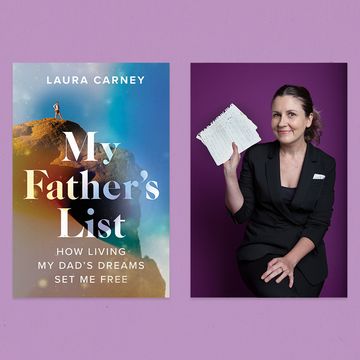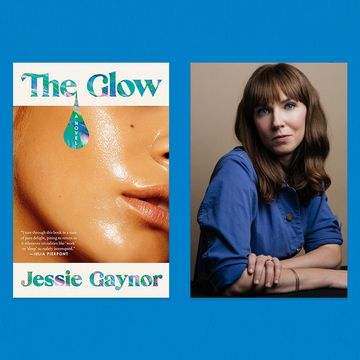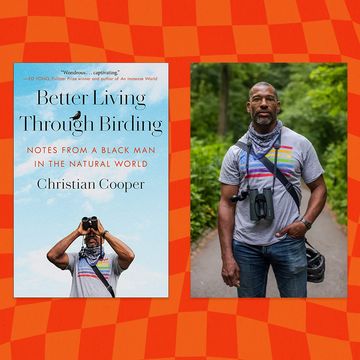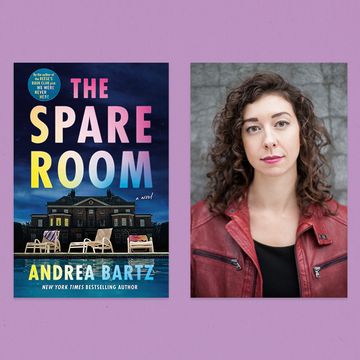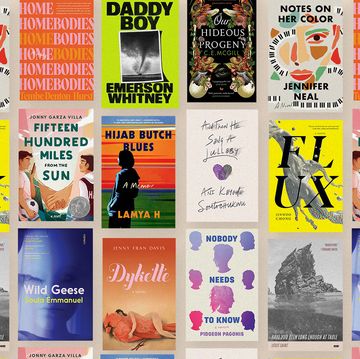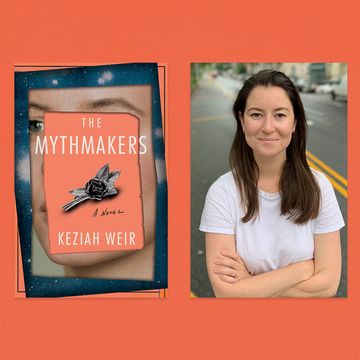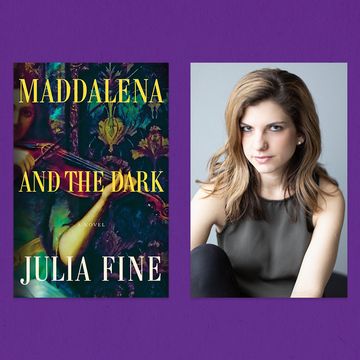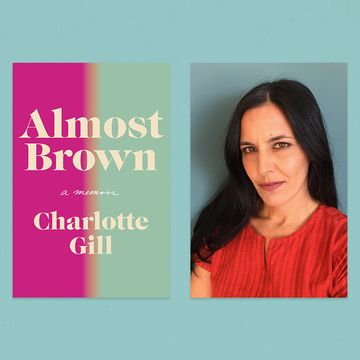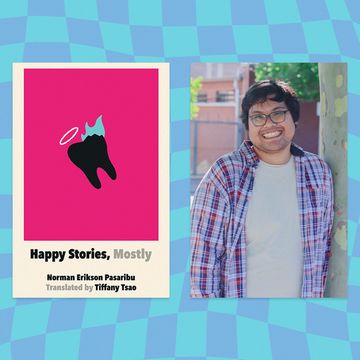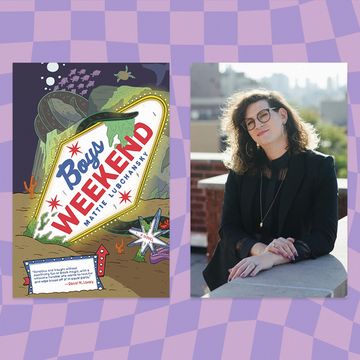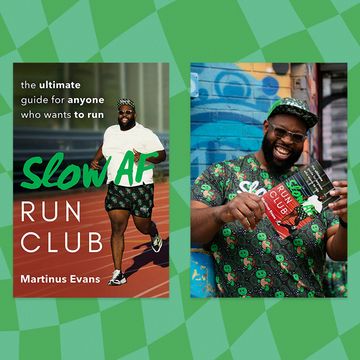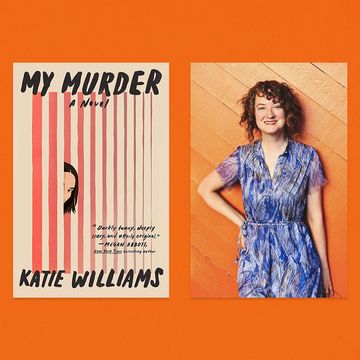Keah Brown is no stranger to both writing and ruminating on friendship. Her first young adult novel, The Secret Summer Promise, is a delightful read for the warm season. The novel follows Andrea Williams, a young woman who has undergone surgery and extensive treatment for her cerebral palsy and is looking to make up for lost time. And she wants this summer to be filled with memories with her dearest friend, Hailee Tsang, who’s been through it all with Andrea.
To Andrea and Hailee, their friendship is a home filled with love and giggles. For summer, the pair set out to make the season their most entertaining and iconic one yet, crossing every item off their list, from movie marathons to concerts and skinny-dipping.
Andrea is excited, but she’s also terrified: She is kind of in love with Hailee. But she can’t deal with these complicated feelings, so she is open to any distractions. In comes a charming yet inconsistent young man named George. Soon enough, the three find themselves in a love triangle. A genuine, endearing tale unfolds that will leave readers feeling comforted by the kind of warmth that only a good friendship can provide.
Brown, the author of the essay collection The Pretty One and the picture book Sam’s Super Seats, started the hashtag #DisabledandCute, which eventually went viral and garnered the attention of celebrities and other people from the disabled community. Brown beautifully captures the kind of excitement so specific to young people — a pure giddiness that hasn’t been squelched by the rest of the world.
Brown (who, for the record, happens to be a dear friend of this writer) spoke with Shondaland about criticisms of the YA genre, writing characters whose choices she loves to question, showing up for her friends, and more.
KATIE TAMOLA: “It’s so great, Hails. I don’t have finals or homework to worry about. It’s the start of summer, and I don’t have a worry in the world.”
How did you decide you wanted to write a novel that has such a strong plot point of completing a fun wish list during the summer?
KEAH BROWN: I, as a person, love summer because I hate being cold. My archnemesis is winter. So, I was like, “Listen, I want to sit a little longer with the idea of just having time to be with the people you love.” And with Andrea, because she spent the previous summer off the page recovering from a surgery, she was like, “This is it.” Summer to me has always been full of possibility. So, it made sense for me to go ahead and set it that way.
Because I remember being so excited for summer at her age and even now as an adult. I get excited for it to just be warmer and to give me vitamin D. Summer is absolutely a character in the novel, and Andrea’s sort of connection with the sun in particular is based on the idea that it just makes her feel like her best self when she’s warm and it’s warm outside.
KT: I am immensely fortunate to know you pretty well. Your beautiful spirit is reflected in this novel. Do you find that you like to craft characters who mirror your own interests (I giggled when Hailee wanted cheesecake), as well as characters who would probably challenge you in real life?
KB: I think it’s a bit of both. Like, there are some things in Andrea, and then Hailee, and then the other girls in the book that are definitely me. Like Hailee’s love of cheesecake is me all the way. But I also like to write characters who would get on my nerves in real life. Some of the choices that they make — I’m like, “Girl, why would you make that choice? What is wrong with you?” Even though I’m creating them!
I spent so much time in this book, particularly being like, “Now, Andrea, if you would just tell her X, Y, and Z, then you will be in a better place.” But that’s the fun I think of telling stories, being able to have little pieces of yourself in them but also pieces that are the exact opposite of who you are as a person, because then you get to see where they’re going, and it makes you really think deeper about the people around you.
I think in this book and in fiction in general, you’re able to play with that to really [ask]: Who is this person, and why are they making the choices that they’re making? So, I find that there’s always a little bit of me in each of the characters that I create, but I find it to be more fun when they’re nothing like me at all.
KT: Even though Andrea and Hailee have a possible romantic element to their relationship, the strong foundation of their friendship flies off the page. Do you think you were trying to convey a point about friendship and love through their journey? Or did you just craft these characters and let your pen and heart direct you to their fates?
KB: Their friendship in particular I’ve modeled after my friendships. My friendship with you, or my friendship with so many other really close friends. I said to myself, I want Andrea and Hailee to truly love each other platonically as well as romantically.
I just — I’m obsessed with friendships. I am a friend’s gal. I will go to the ends of the Earth for my friends; they are the loves of my life. I wanted to put that in the book. Because I don’t think we talk about it enough.
We tell people the main focus in your life should be romantic love. Of course I want somebody to romantically love me, but my friends love me so much and so deeply that I want to be able to share that with young people. It’s like, yeah, [Andrea and Hailee] love each other. They are in love with each other, but the foundation of their love is friendship. And I just wanted to show how deep and lasting that love can be as well.
KT: Andrea, humorously, can acknowledge when George is “laying it on thick.” He’s still quite lovable at times, and as a reader you’re kind of joyfully torn in a few different directions with such a love triangle. When did you know you wanted to play with love triangles? Do you have any favorite fictional love triangles that may have inspired you?
KB: You know what’s so funny? I typically hate love triangles. I find them to be so tedious and just boring, but I felt like it was necessary here because I think Andrea needed to think she could have it all without losing anything.
I think the thing about Andrea when we meet her is she’s like, “Guess what, guys? It’s going to be the best summer ever. Me and my best friend — it’s going to be lit. And oops! Guess what? I’m in love with her. But I can’t be, so I’m gonna go find somebody else to love me.” The thing with George that was very important for me was not to make him an inherent villain. He’s just a coward. He’s a 17-year-old kid who’s a coward, and he thinks that the be-all and end-all is what these friends in high school think of you. So, it’s not that he’s a bad guy; he’s just a coward who can’t stand up for the girl he claims to like.
There are moments where you’re like, “Damn, am I rooting for George? What’s going on?” And that was intentional because I wanted to show that even if he wasn’t a coward, he was an option for her — but not really. I wanted it to be like, okay, could she go with him? Sure. But the love she has for Hailee is far too strong. With Hailee, she doesn’t have to worry about whether or not she would be embarrassed to hold her hand in the school hallways because Hailee will be like, “My girl! We go together!” She’s not at all going to be ashamed of being with her; she’s not going to make her question her worth or ask her to be a secret.
As cute as George is with the hair and the eyes, even with laying it on thick, by the time we get to the point in the book where the conclusion comes with her and George, it’s because she realizes her own worth, and she’s not just settling for the first person who showed her interest outside of [whom she liked]. She stopped accepting the scraps that George was giving her.
KT: This is your first young adult novel. I found your writing to be so comforting and transportive. Were there specific authors, YA and beyond, who have had a big impact on you and your work?
KB: I made a joke the other day that I am the child of Sarah Dessen. I grew up on her books. I remember just reading her words in my school cafeteria, feeling this excitement — the idea of a slow, syrupy summer that has these people that you’re rooting for. It’s not this big, huge thing where something happens [in the novel], but it’s these people that you get to know and love.
And I wanted always to be a writer who could emulate that but also pay homage to it because there was nothing to me like the summer reading list. Or the Scholastic Book Fair. I would read YA and wish that there was somebody that was like me or a diverse cast of people [in a novel like this]. And so, by the time I got to writing this book and creating this world and telling the story, I was just like, “Yeah, I’m gonna Sarah Dessen the hell out of this book.”
Also, Roxane Gay. I would not be the writer that I am without Roxane Gay. And I even modeled a character after her in the book. Her name was Alexis Sherwood, and she’s at the art showcase in the end. I think there’s something about having someone to look up to, having something to refer to, to make you feel like, “Wow, that’s possible for me.” I wanted to give that to Andrea because I feel like in so many ways, Roxane — whether she knows it or not — has given that to me. And so, I think of her, and Sarah Dessen, Susane Colasanti, Toni Morrison, and just the way that they craft character. I want to be able to do that for people now. I want to be able to have a character that you can be completely frustrated with but also love at the end.
I think the biggest compliment to me was when another writer said, “When I read your book, I wanted to throw it across the room.” I said thank you. There’s nothing better, because I want people to leave the book thinking about the characters and feeling something in the way that [these books] have made me feel.
KT: YA can be dismissed as “kid lit” and fluffy, but I don’t think that’s fair in the slightest. How do you respond to this dismissive attitude?
KB: That question is interesting because in early reviews, there are people who are like, “Oh, God, this reads like middle grade. This reads so young.” I pushed back against the idea because I think people expect teenagers to act like kids in Euphoria. There’s nothing wrong with Euphoria at all, but the characters in my book, they like their parents. And they like each other.
And I think a lot of that conversation about kid lit is this idea that [rejects the reality that] there are children in the world who, again, like their parents and want to hang out with their parents. And want to have a good summer without it being about drugs and alcohol and sex. Books don’t have to be a certain way in order to matter; I find that people will demean something that they don’t understand.
And it’s cool if YA is not your vibe. But there’s so much heart, so much talent, so much great storytelling with beautiful characters in any young adult book. I think people are really missing out by reducing it to “Oh, that’s just for kids.”
KT: I always hesitate to ask this question because sometimes it risks feeling reductive. However, what would you like someone to take from The Secret Summer Promise?
KB: I want them to take away that disabled Black queer girls deserve love too. That it’s really nice to tell a story where it reflects the world that we’re living in, that we can be the main characters of a story, and it’s not only enough, but it’s good. It’s important.
And I really hope that people take away the importance of romantic love, but also platonic and familial love. These people have people who love them. It’s about community and how it’s okay to lean on other people when you need them.
That’s what I want people to take away from it — that you can lean on other people. You can fall in love. You can have friends who love you and family who loves you, and you can create a family that loves you. That you deserve that. It’s not some big, mysterious thing where everybody deserves it, but you — no, you — deserve it as well.
Katie Tamola is a freelance writer who grew up in Manhattan. Find her on Twitter @katietamola.
Get Shondaland directly in your inbox: SUBSCRIBE TODAY
